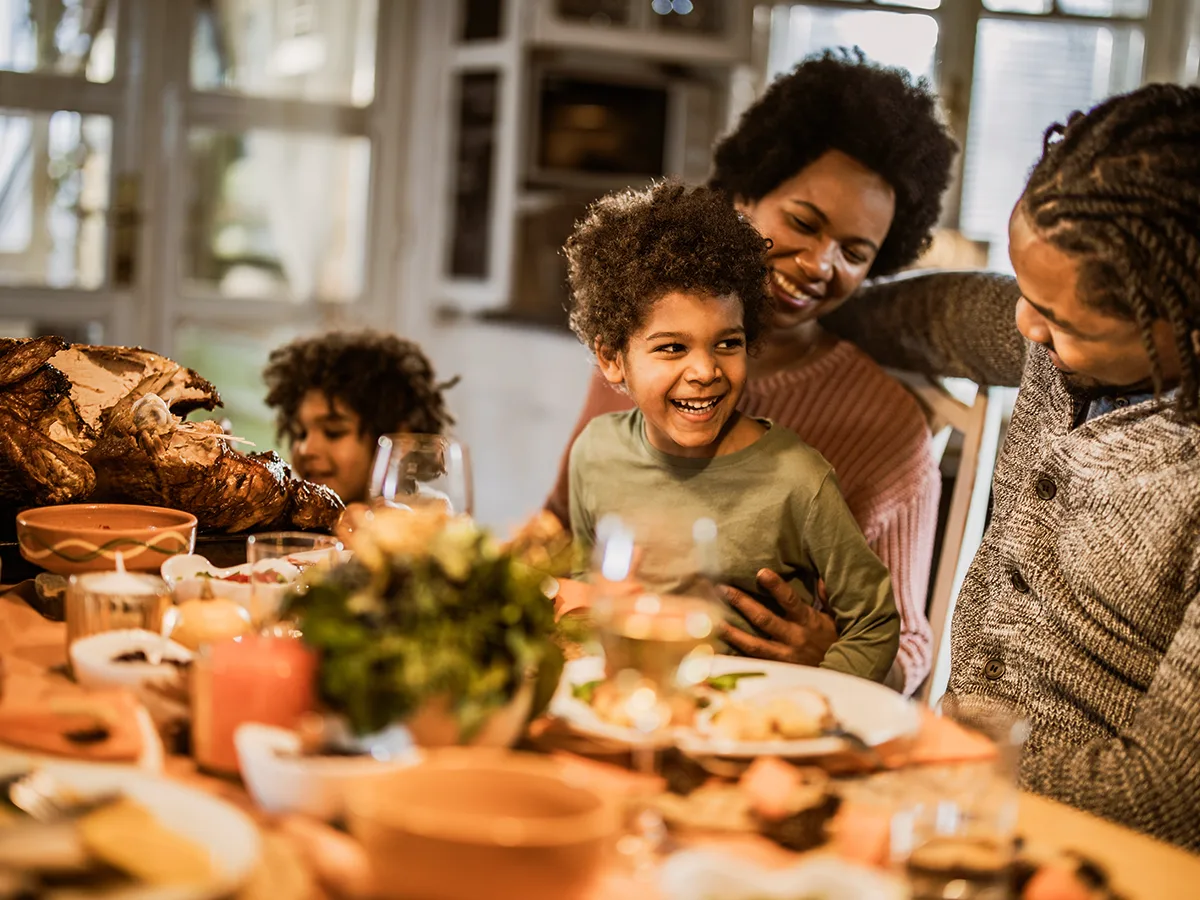Common Thanksgiving challenges for kids with ADHD

At a glance
Thanksgiving can be a tough day for kids with ADHD.
The change in routine can make kids with ADHD uneasy.
You can’t control all the chaos of big family events, but you can prepare for it.
As enjoyable as Thanksgiving is for some families, it can often be a difficult time for kids with ADHD to manage. That’s especially true if the holiday involves gatherings and long sit-down meals. Here are some typical trouble spots and what you can do to help.
Interrupted routines
The problem: If you’re traveling for Thanksgiving, your child may be sleeping in a strange place and following an unfamiliar schedule. Even if you’re hosting, your family’s routines may be disrupted. That’s rough for kids with ADHD.
What to do: Stick to your child’s routines as much as possible. Try to arrange travel or visiting schedules so that your child eats and sleeps at the usual times. And prepare your child in advance for any disruptions you foresee. Give an overview of what will be happening beforehand. Then remind your child at each stage what’s coming next.
Waiting for the big meal
The problem: When the whole holiday is centered on a single meal, waiting for it can feel like an eternity for some kids. They may become bored or cranky, which can lead to arguments or tantrums.
What to do: Before Thanksgiving, ask relatives to help line up some morning activities. Maybe a grandparent or an uncle can take your child to the park. Older cousins can set up a family game for the younger kids. Let the kids know in advance what will be happening when. This way, dinner won’t be the only thing to look forward to.
Company chaos
The problem: If your Thanksgiving involves a lot of people, your child may be upset by the noise and activity. The chaos might be distracting, overwhelming, or overstimulating.
What to do: Whether you’re home or away, find your child an “out” spot. Agree on a place where your child can go for a set period of time to be alone and listen to headphones, play a game on the phone/iPad, or read.
Busier parents
The problem: Some young kids need constant direction from adults. That’s hard when you’re trying to make the whole Thanksgiving dinner and coordinate guests.
What to do: First, try to get as much as possible done before Thanksgiving Day. Make what you can in advance, and go potluck for side dishes. That way, you can set aside time to check in periodically with your child. And don’t forget to delegate. Is there a relative who’d be happy to oversee your child for the morning? Bring out some coloring books or puzzles so your child stays occupied while you’re busy.
Taking turns talking
The problem: Some kids may talk nonstop before, during, and after dinner. This can annoy some guests. Kids who are impulsive, reacting quickly without thinking, may interrupt family members’ stories to tell their own. Or they may suddenly yell if they get excited about something. If a guest challenges your child, your child might reply in a way that seems rude.
What to do: Before Thanksgiving, role-play appropriate ways your child might start, join, and end conversations with guests. Come up with a code phrase or a signal that you can use to remind your child that it’s time to let someone else talk.
Sitting still for the long dinner
The problem: Lengthy holiday meals can be especially tricky for kids with ADHD. They may find it hard to sit through Grandpa saying grace, let alone a multi-course meal. Add all those unfamiliar foods and grown-up discussions, and you’ve got the makings for a meltdown.
What to do: Remember that your child will do best with some parameters, like not interrupting the adults. But relax your expectations. Thanksgiving isn’t the day to expect ideal behavior. If there are several kids there, consider having a kids’ table. But it’s also OK to let kids wander away from the table between courses. Teens can also be in charge of keeping dinner fun for the younger guests.
Key takeaways
Talk with your child about how the day will go before it happens.
The more kids know what to expect, the less chance for anxiety or conflict about the change in routine.
You can even practice some possible dinnertime conversations or interactions beforehand.

